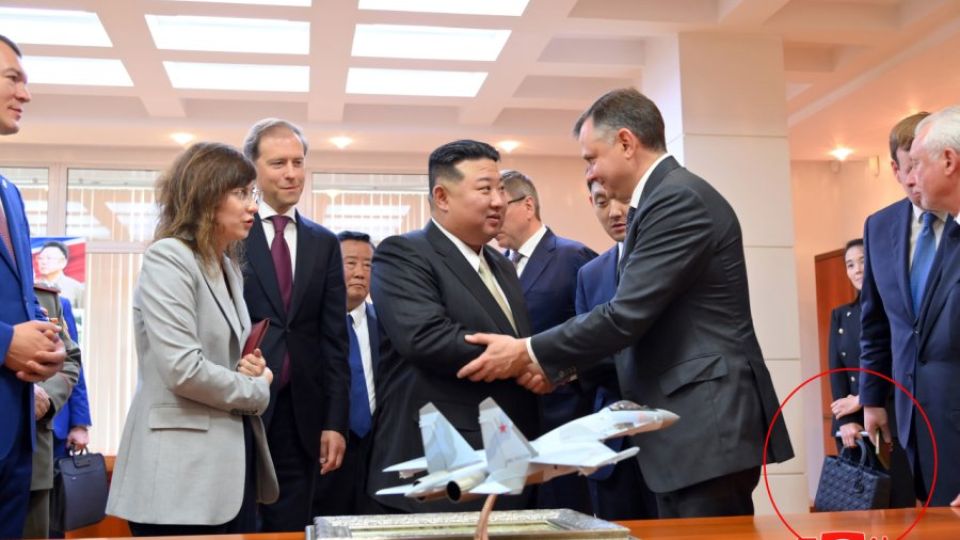September 18, 2023
SEOUL – Kim Yo-jong, the powerful sister of the North Korean leader, could be seen grasping a $7,000 bag from French luxury fashion brand Christian Dior during Kim Jong-un’s visit to the Yuri Gagarin Aviation Plant in Komsomolsk-on-Amur, Russia on Friday.
According to a picture released by the North’s official Korean Central News Agency, Kim Yo-jong was holding the black bag with quilting patterns like that of the Lady Dior bag currently being sold via Dior’s official website. Kim accompanied her brother for his trip to Russia.
It is not the first time that the Kim family appeared in public brandishing foreign luxury goods.
During North Korea’s Hwasong-17 intercontinental ballistic missile test launch in March, Kim Jong-un’s daughter, Kim Ju-ae, was seen wearing a $1,900 black coat, also presumed to be from Dior. Kim Jong-un himself was seen wearing a watch from Swiss manufacturer IWC Schaffhausen worth $13,400 during a military parade celebrating the 75th anniversary of its ruling Worker’s Party in 2020.
In recent years, there has been a surge in demand for luxury goods in North Korea. In the past, that has been limited to the Kim family’s bloodline, but recently, several North Korean elites have also had access to purchasing international high-end brands.
State-owned shops in Pyongyang are reportedly selling luxury goods by receiving US dollars from customers and giving North Korean won as change. According to UN Security Council Resolution 2270, luxury brands are explicitly banned for import into North Korea, but the Kim family allegedly has a separate entity that procures luxury goods and food for them.
Meanwhile, the Kim family’s love for luxury brands has been met with heavy criticism outside its borders, especially following the BBC’s report on North Koreans starving to death due to food scarcity in June. The National Intelligence Service also told the National Assembly’s Intelligence Committee in May that due to intensified food shortages in North Korea, the number of those who have died due to starvation tripled compared to previous years.


